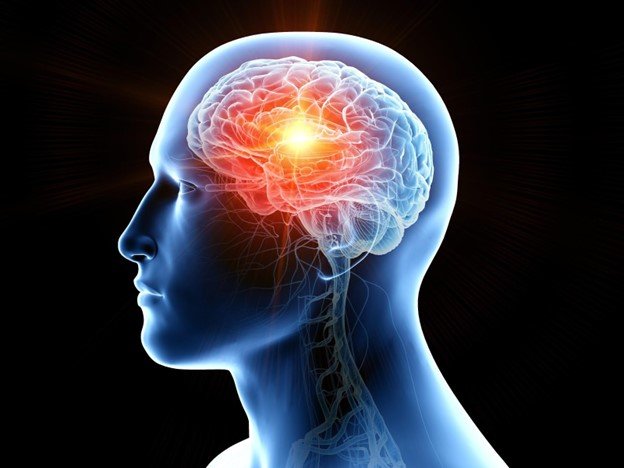Intermittent fasting is certainly one of the “trendier” approaches that health-conscious people are taking in hopes of improving their overall health and fitness. What even some of the most well-informed fitness enthusiasts don’t realize is that fasting can actually have several cognitive benefits as well as improve your physical fitness.
Metabolic Switch and Cognitive Enhancement
Interestingly enough, periods of fasting sufficient to cause depletion of liver glycogen stores (14-16 hours) trigger a metabolic switch towards use of fatty acids and ketones. Your brain actually uses these as a secondary fuel source. Periodic flipping of the metabolic switch not only provides the ketones that are necessary to fuel cells during the fasting period but also elicits highly orchestrated systemic and cellular responses that carry over into the fed state to bolster mental performance.

These responses trigger noteworthy increases in Brain-Derived Neurotrophic Factor (BDNF) and cAMP Response Element-Binding Protein (CREB), which improve working memory, long-term memory, and protect against neurodegenerative disease. BDNF is pivotal in synaptic plasticity, neurogenesis, and neuronal stress resistance. CREB, on the other hand, is linked to preservation of long-term memory.
That’s not all. Research by Lee and Kim (2010) support that increased BDNF can positively influence mood and depression. The specific diseases that BDNF and CREB can help protect you from include Alzheimer’s according to Halagappa et al., 2007, Parkinson’s and Huntington’s according to Duan and Mattson (2009), and even strokes according to Arumugam et al., 2010. If you’re starting to see a lot of appeal in this, I can assure you that you’re not alone.

Harnessing Ancestral Wisdom: Fasting for Optimal Health Cognitive Enhancement
It might seem impossible that fasting could improve brain function and help avoid terribly unfortunate diseases. After all, we are constantly told our whole lives that eating food is key to reaching optimal performance. This isn’t incorrect, either. But balancing the right diet with the right type of fasting is actually the formula to reach peak condition.
Looking at this from a historical perspective further bolsters the case I’m making. Humans have evolved through countless adaptations that are neglected in today’s modern, technologically advanced world, and emulating our ancestors (who fasted daily for millions of years) allows us to hone in on biological advantages that propelled their genetic material forward. From a genetic and evolutionary standpoint, intermittent fasting makes more sense than any other approach to eating.
It’s important not to judge health tips based on what is easy and what is not. Don’t be a product of comfort and convenience. Start fasting daily and discover that your peak intelligence is even higher than you think!
And if you have any questions about intermittent fasting or how to apply these findings to your life, feel free to ask below.
References:
- Arumugam, T. V., Phillips, T. M., Cheng, A., Morrell, C. H., Mattson, M. P., & Wan, R. (2010). Age and energy intake interact to modify cell stress pathways and stroke outcome. Annals of Neurology, 67(1), 41–52. https://doi.org/10.1002/ana.21798
- Duan, W., & Mattson, M. P. (1999). Dietary restriction and 2-deoxyglucose administration improve behavioral outcome and reduce degeneration of dopaminergic neurons in models of Parkinson’s disease. Journal of Neuroscience Research, 57(2), 195–206. https://doi.org/10.1002/(SICI)1097-4547(19990715)57:2
- Halagappa, V. K. M., Guo, Z., Pearson, M., Matsuoka, Y., Cutler, R. G., LaFerla, F. M., & Mattson, M. P. (2007). Intermittent fasting and caloric restriction ameliorate age-related behavioral deficits in the triple-transgenic mouse model of Alzheimer’s disease. Neurobiology of Disease, 26(1), 212–220. https://doi.org/10.1016/j.nbd.2006.12.019
- Lee, B.-H., & Kim, Y.-K. (2010). The Roles of BDNF in the Pathophysiology of Major Depression and in Antidepressant Treatment. Psychiatry Investigation, 7(4), 231. https://doi.org/10.4306/pi.2010.7.4.231









Your website is a treasure trove of information, and I admire your dedication to quality. May the wind of success take you to greater heights.
Simply wish to say your article is as amazing. The clearness in your post is just nice and i could assume you’re an expert on this subject. Well with your permission let me to grab your feed to keep updated with forthcoming post. Thanks a million and please carry on the gratifying work.
Hey there, You have done a fantastic job. I will certainly digg it and personally recommend to my friends. I’m confident they’ll be benefited from this site.
Just wish to say your article is as surprising. The clearness in your post is just cool and i could assume you’re an expert on this subject. Fine with your permission allow me to grab your RSS feed to keep updated with forthcoming post. Thanks a million and please keep up the enjoyable work.